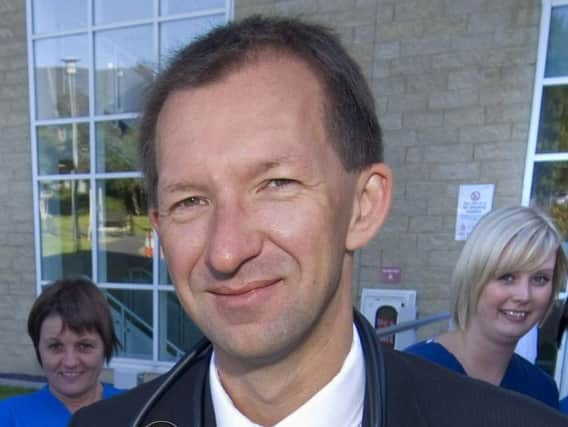Pre-planned operations '˜could be cancelled for two months a year' to ease NHS pressure


Dr Nick Scriven, President of the Society for Acute Medicine, which represents emergency care doctors, said it could be one radical solution to overcrowding in hospitals.
Halifax-based Dr Scriven said some doctors had called on the health service to consider stopping elective activity throughout January and February.
Advertisement
Hide AdAdvertisement
Hide AdThousands of pre-planned procedures were postponed after hospitals in England were told to delay elective operations in January this year. But NHS trusts were advised that urgent cases and cancer care should still proceed as planned.
Dr Scriven questioned whether postponing elective procedures should become a routine measure.
This winter hospitals were forced to open previously-closed wards and turn investigations areas into makeshift wards.
Dr Scriven said that he had even heard of one hospital which had closed a birthing unit for a few days to make space for medical patients.
Advertisement
Hide AdAdvertisement
Hide AdHe said that the NHS had “just coped” over winter and that was down to the goodwill of staff.
He added: “People in power have to sit up and take notice that this isn’t going to get better, and unless something radical is done it is going to get worse.
“There are the things that people always talk about like this year, the NHS suggested that people should suspend elective activity for a month. Should that be a routine thing?
“To free up the extra wards in every hospital in January and February. That would be one radical thing.”
Advertisement
Hide AdAdvertisement
Hide AdIn January NHS England said around 55,000 non-urgent operations, including hip and knee surgery and cataract procedures, would be delayed under official guidance for hospital trusts.
Under separate measures, around 600 routine procedures and appointments were postponed at Hull and East Yorkshire Hospitals NHS Trust. The trust launched an eight-day initiative at the end of January to tackle delays in A&E and overcrowding.
Dr Scriven made his comments after a document from the House of Commons Library highlighted hospitals almost full to capacity, long waits for patients and ambulance delays.
NHS England’s new Medical Director also acknowledged that pressures on the health service “loomed particularly large” this winter. Writing in a national newspaper, Professor Stephen Powis said the main business of the NHS was helping patients with multiple and long-term conditions, but it had been “made difficult by historic administrative and cultural fractures”.
Advertisement
Hide AdAdvertisement
Hide AdProf Powis added: “Opportunities to limit ill-health are missed, patients get pushed from pillar to post, staff are frustrated when trying to ‘do the right thing’, hospitals pick up the pieces and pressures build.
“Those pressures, which loomed particularly large this winter, are symptomatic not only of constrained funding but also of a system designed for a different era.”
Prof Powis warned of the need for reforms to avoid unnecessary hospital stays for elderly people.
He said that elderly patients who are admitted to hospital can age the equivalent of 10 years in 10 days.
He welcomed the Prime Minister’s commitment for a long-term plan, adding: “There are half a million more people aged over 75 than in 2010 and there will be two million more in 10 years’ time.”